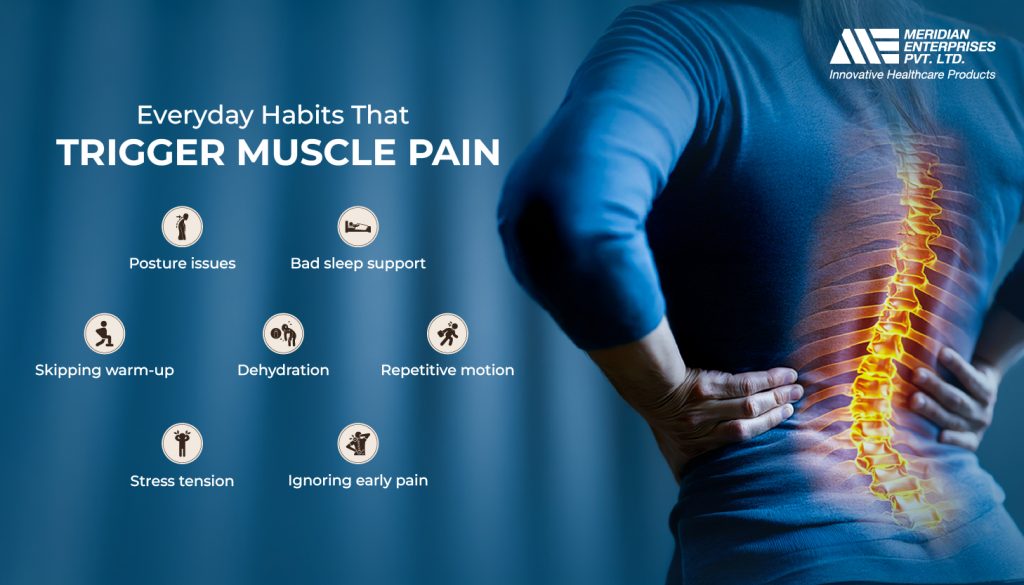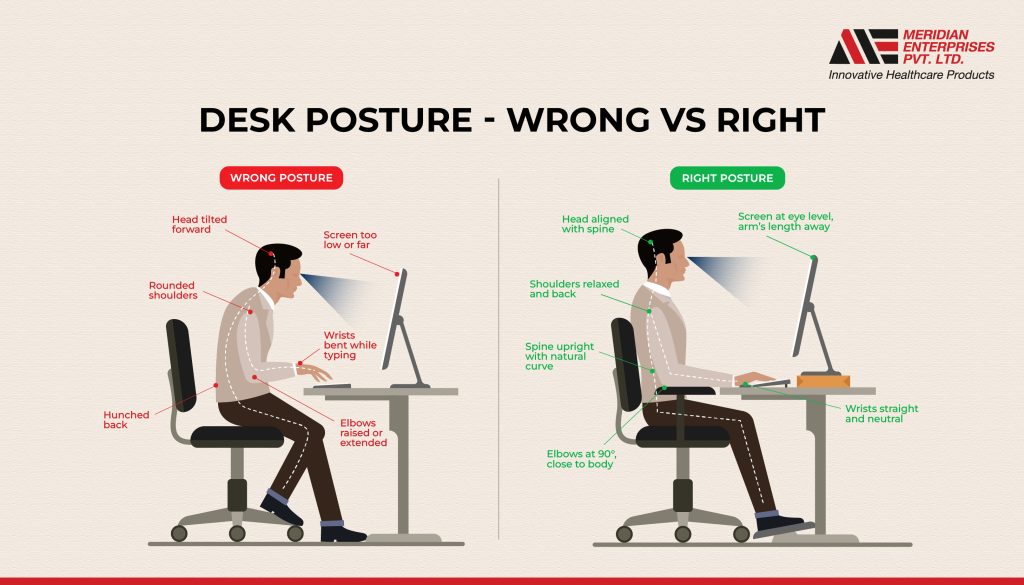7 Habits That Cause Muscle Pain and How to Avoid Them
Date Created: 25 Jul 2025

Muscle pain with no clear cause? You’re not alone.
Most people link muscle pain to exercise or injury but often, it comes from how you sit, sleep, move or carry stress. These overlooked habits are some of the most common causes of muscle pain, and they often go unnoticed until the discomfort becomes regular.
Tight shoulders, a stiff back or random aches are your body's way of asking for change. This blog breaks down the habits that trigger pain, what you can do to prevent it, and how to get muscle pain relief without overcomplicating the process.
Understanding Everyday Muscle Pain
Most people think muscle pain is something you earn at the gym. That’s only part of the story. A surprising number of people deal with daily discomfort caused by the way they live and move.
Common muscle pain symptoms include stiffness, dull aches, tenderness and sudden soreness. If it’s hard to stretch in the morning or you feel tight after sitting, your body is likely trying to get your attention.
There are many causes of muscle pain that have nothing to do with workouts. Aspects like poor posture, skipped stretches, or long periods of sitting can all lead to muscle strain. If it keeps going unaddressed, small issues can lead to more serious pain or even injury.

7 ‘Harmless’ Habits That Trigger Muscle Pain
1. Sitting for Too Long with Poor Posture
If you work at a desk or use a phone a lot, this one hits home. Slouching pulls on your neck and back. Over time, it builds pressure in your shoulders and lower spine.

2. Sleeping with the Wrong Support
A flat pillow or a too-soft mattress can twist your neck or hips overnight. You might not feel it while sleeping, but your body pays for it during the day.
3. Skipping Warm-Ups
Even chores or quick walks need a few minutes of movement prep. Muscles perform better when they are gently activated.
4. Not Drinking Enough Water
Dehydration messes with your muscle function. It can cause cramps, tension and lower flexibility.
5. Carrying Stress in Your Body
Tense shoulders. Locked jaw. Tight lower back. Stress sits in your muscles without you realising it. Over time, this becomes chronic pain.
6. Ignoring Minor Pain
A small ache today becomes a bigger one tomorrow. Most people shrug off early signs until it becomes a regular problem.
7. Repeating the Same Motion
Typing, lifting, driving, and doing one thing over and over without rest or balance leads to overuse injuries. Even scrolling on your phone strains the wrists and forearms.
How to Fix and Prevent Muscle Pain
Making small changes to your daily habits can offer major relief.
- Improve your desk setup
Use a chair with back support and raise your screen to eye level. - Stretch every few hours
Set a timer if needed. Focus on the neck, shoulders and hips. - Stay hydrated
Sip water throughout the day, not just when thirsty. - Move mindfully
Start and end your day with gentle stretches. Even two minutes makes a difference.
Tip: Your muscles reset overnight. A proper sleep routine matters more than you think.
Home Remedies That Can Help
Not every sore muscle needs to be checked by a doctor. These simple home options work well when used consistently.
Warm Baths
A 15-minute soak can help release tightness and improve circulation. Add Epsom salts if you have them.
Light Self-Massage
Use your fingers or a massage ball to target tense spots. Focus on circular motion around the area.
Deep Breathing
Stress-related pain responds well to breathwork. Try slow inhales and longer exhales while lying down.
Heat or Cold Packs
Use a heat pack for stiffness. Use cold for swelling or a recent strain.
Besides these home remedies, many people also find relief with natural pain relief roll-ons. They offer targeted support and can be a helpful addition to your self-care routine, without relying on oral medication.
When Muscle Pain Might Be Serious
If pain shows up with swelling, fever or extreme fatigue, it’s time to check in with a doctor. Some causes of severe muscle pain include autoimmune conditions, infections, or medication side effects. Don’t wait if your body feels off beyond regular soreness.
Conclusion
Most muscle pain symptoms have simple, everyday causes. The good news is, they also have simple fixes. You don’t need to overhaul your life, just stay aware of how you sit, move and rest.
And when discomfort does show up, natural support can help. At Meridian, we created Rilistiff, a natural pain relief roll-on that fits into your daily routine. It’s easy to use, absorbs quickly and works well alongside rest, hydration and better posture habits.
Start small. Your body will thank you
Recent Posts

Iron Deficiency: Symptoms, Causes and Treatment
Read More...
What is indigestion? All You Need To Know
Read More...

